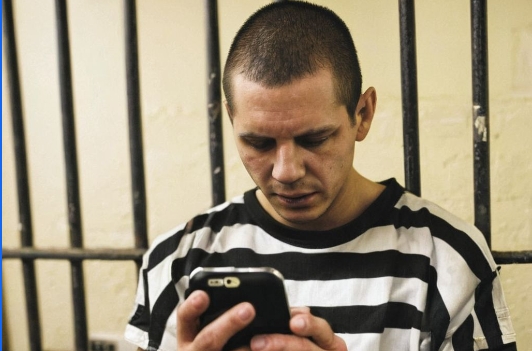The use of professional cell phone jammer in prison is very necessary, although it will affect the signal of mobile phones outside the prison
Columbia, SC (WCIV) - South Carolina is the first company to test a jamming device in a state prison with acceptable results. The Justice Department released the results of its work on the miniature jammer. The South Carolina Department of Corrections is awaiting. The Justice Department left cellphones with test results in state prisons. This is the first collaboration between state and state prison authorities.
The Justice Department said the tests concluded that the phones may not bleed in certain areas of the prison. The leaks are a bone of contention and an ongoing dispute between state and federal prison officials and the radio industry. Prison officials use this test to see if vandals can actually stop prisoners from using prohibited phones in prisons. However, testing must demonstrate that the portable jammer does not interfere with services in commercial cells outside the prison.
SCDC Director Brian Sterling said he has seen firsthand the effects of human intervention. "(But) this test was running, but I went right in and said, 'I'm ready to go inside the device. "My phone stopped working after I put my foot on the GPS jammer. It ran in front of the device. There was no bleeding," Sterling said.
Director Sterling said the test is a research project that supports federal law. The law, known as the Cellular Interference Reform Act, was introduced seven months ago. This made it possible to intervene in state prisons. The bill was co-sponsored by Senator Lindsay Graham (SC-R). If successful, the bill would replace previous FCC limits that made congestion illegal. The committee now has a law addressing cellular interference, but SCDC officials say they want hearings in the House and Senate.
The use of jamming devices in prisons is very necessary
Last year, Oklahoma seized more than 5,200 smuggled cellphones from inmates. Mike Carpenter, director of security for the Oklahoma Department of Corrections, said contraband smuggling in prisons remains a serious problem. Fights between rival gangs at an Oklahoma prison escalated rapidly over the use of cellphones last month, while one inmate was killed and a dozen were injured in fights at several other prisons, Carpenter said.
Thousands of illegal cell phones end up in the hands of inmates using criminal tools. But prison officials said Monday that professional cell phone jammers are one of the best ways to prevent inmates from using their phones to commit crimes. Prison officials in Oklahoma and South Carolina testified before an Oklahoma Senate committee that they had demonstrated the effectiveness of cellphone jamming technology.
While states may use jamming devices under federal law, it's still pending in the Senate and Senate. "My proposal is simple," Senator James Lankford of Oklahoma told the U.S. Senate earlier this year. "We can block phones in prisons to protect our guards, to protect our families, and to prevent people from committing crimes in prison."
Professional cell phone jammer prevents prisoners from communicating in private

After years of lobbying in various states, proofreaders tested a cell phone jammer in a South Carolina prison this week. According to South Carolina's Brian Sterling, the tests were conducted at the Broad River Correctional Facility in Columbia, South Carolina, for maximum safety over several days.
Prison officials have used the test to demonstrate that cellphone jamming technology can allow inmates to use prohibited cellphones to talk to them within prison walls without interfering with cellphone service outside the prison. We'll find out if we can stop it from happening. This is the first collaboration of its kind between state and federal prison authorities.
Criminal companies use smuggled cellphones to operate, distribute child pornography and make it easier for prisoners to commit violent crimes while in custody, federal prison officials said in a release. "The reason we need to do this is that cell phones in the hands of prisoners are a threat to public safety," Sterling said.
Sterling said the tests showed that cell phone jamming technology could reduce the risk of crime and bloodshed, although cell phone signals outside prisons would be compromised.
